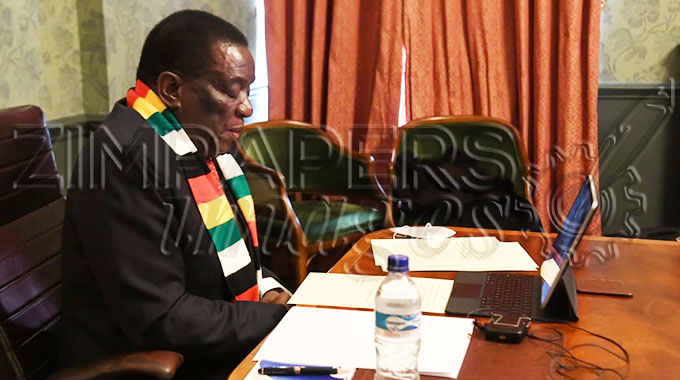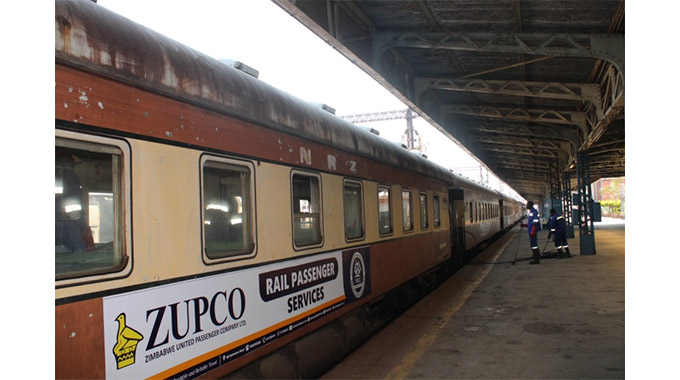Mining sector to drive Zim investments

Deputy News Editor
Zimbabwe has vast mining opportunities, with over 60 different high-value minerals both those already mined and some, such as rare earths, never exploited, President Mnangagwa said yesterday.
Addressing a virtual business conference that included British investors and Government ministers, with President Mnangagwa in Gleneagles while the investors followed proceedings from Glasgow, he said Government will continue to improve the ease of doing business to ensure reduced costs for investors.
In the mining sector, Zimbabwe is endowed with vast natural resources and is host to more than 60 different minerals, in the categories of precious metals, base metals industrial metals and gemstones, among others, said the President.
The major minerals include gold, platinum group of metals, diamonds, lithium, chrome, iron, ferrochrome, coal, nickel, copper, coal bed methane gas as well as oil and rare earth elements that are critical in this Fourth Industrial Revolution and technology-driven era.
The mining industry is projected to grow by 11 percent this year. Guided by the country’s mining strategy, investment opportunities exist in increased exploration, expansion of existing mining projects, resuscitation of closed mines, opening of new mines, mineral beneficiation, and value addition.
Investors are thus welcome in the mining value chain.
President Mnangagwa said tax incentives on capital expenditure for exploration, development and operations were equally available.
Government is encouraged and buoyed by immense possibilities presented by ongoing oil and gas exploration, with projects underway in Muzarabani, in the north eastern part of the country.
President Mnangagwa said the oil project will broaden Zimbabwe’s energy mix and provide additional investment prospects along the petro-chemical industries, with far-reaching benefits to the economy.
“My country’s quest to expand the renewable energy sector entails investment opportunities for those who would wish to set up solar energy plants and associated industries.
“The abundant lithium deposits present investment prospects for the lithium industry value chains,” said the President.
The financial services sector remains stable and Government will continue to implement reforms and create a robust investment environment that further opens Zimbabwe for business, reduces the cost of doing business and improving the country’s competitiveness.
Government is also working on cutting red tape to ensure investors don’t move from pillar to post to get assistance.
Other opportunities exist in the manufacturing sector, energy, ICT, tourism and agriculture.
In tourism, Zimbabwe wants investors who want to set up hotels and other facilities to broaden the tourism products.
In furtherance of the reengagement drive, Zimbabwe continues its quest to be a friend to all and enemy to none within the community of nations.
President Mnangagwa said his administration will continue to honour bilateral investment promotion and protection agreements and respect private property rights.
“We stand ready to welcome all investors and business enterprises from the UK, and extend a special invitation to the Scottish Business Community to come and invest in Zimbabwe.”
President Mnangagwa wanted all investors that have been inconvenienced by civil servants to immediately report so that action is taken against them.
Mr Roy Pitchford, who has interests in mining in Zimbabwe, said he was grateful for the investment climate created by the Second Republic and said his continued investment in Zimbabwe was testament to the conducive environment.
A Zimbabwean, Mr Costa Mangani, asked if a road leading to his rural home in Gokwe would be constructed.
The President said he was happy with Mr Mangani’s interest in development but said those back home were more interested in developing the road and work had already started.
He repeated the formula that a country is built by its owners, and asked Zimbabweans in the diaspora to bring their expertise back home to develop Zimbabwe.
A representative of the British-Africa Business Alliance asked the President to redouble efforts of ensuring the investment climate was improved.







Comments